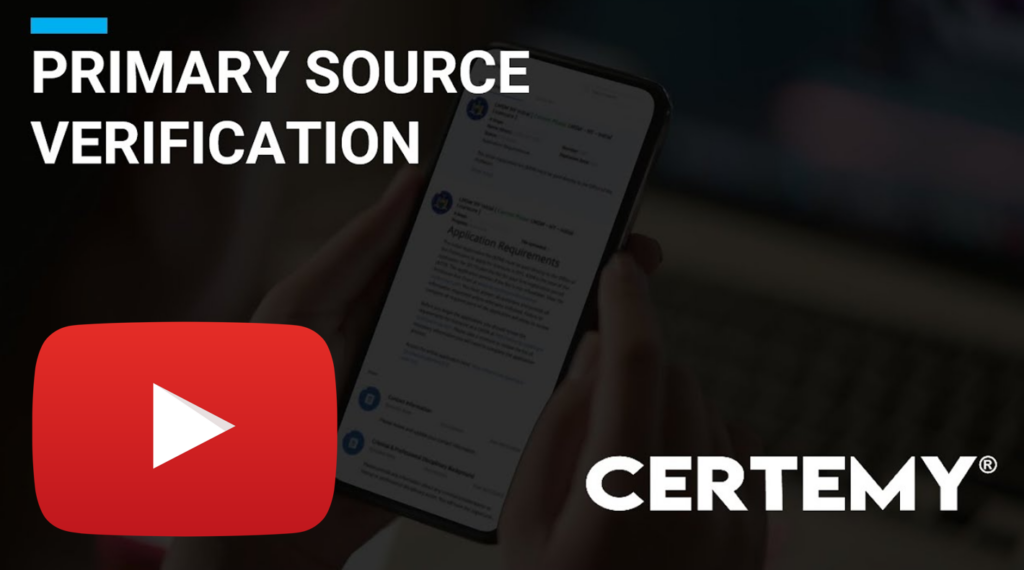
License Verification Tool | ACHPN – Palliative Care Nurse Practitioner
Those considering a career in palliative care know it comes with certain specialties, certifications, and ultimately, expertise in nursing practice. From both a legal and moral perspective, maintaining accurate documentation and awareness of an employees credentials is absolutely essential to a successful practice. Licensing and certification requirements vary from state to state, so It is important to understand the nuances of your regulator. Perhaps the most important resource available to a palliative care nurse is the certification process driven by organizations like the American Nurses Credentialing Center (ANCC).
The Palliative Care Nurse Practitioner (PCNP) Certification is an entry-level certificate offered by the ANCC that provides qualified nurses with the knowledge, skills, and experience needed in providing essential care for patients and families facing life-limiting illnesses. As part of the PCNP Certification program, candidates must meet certain criteria, including completion of an accredited program, passing an exam, and completing a specified number of continuing education hours. In order to be eligible for the PCNP Certification, a nurse must first possess a license to practice in the state where they plan to become certified. The licenses accepted for the PCNP Certification must come from a governing authority that is recognized by the ANCC. In addition, nurses must be in good standing and have no current or past disciplinary actions taken against their license. Once the nurse has a valid license, the next step is to meet the education requirements set forth by the ANCC. To initialize the process, applicants must submit their educational transcripts to the ANCC and be able to provide evidence that they have successfully completed a specific amount of graduate-level coursework. This documentation must include but is not limited to, the number of patient contact hours, an overview of the courses and number of hours completed, and the length of the nurse’s program. The ANCC is responsible for assessing the credentials of each applicant and if they?re approved for the examination the nurse will receive the Authorization to Test form. After obtaining the form, the nurse then has 90 days from the date on the form to register for the PCNP certification examination. Additionally, the nurse must provide proof that they have successfully met the required number of continuing education hours. This proof may come in the form of certificates from attending conferences, seminars, or educational programs, all of which must be submitted in the form of a PCNP application portfolio. This portfolio must be completed and submitted no later than 90 days prior to the expiration of your certification. The PCNP Certification is a rigorous process, so It is important to understand the requirements and have the necessary paperwork ready. Paying attention to the documentation process, ensuring you meet the initial license requirements, and attending the appropriate seminars will help you maintain the necessary credentials to obtain and keep your certification up to date. Unfortunately, the manual burdens associated with Compliance and credentialing can lead to inconsistencies in the Verification process and potential labelling of nurses as out of date with their certifications, even if they are in fact in good standing. The tedious nature of manually tracking credentialing documents can also take time away from the vital day-to-day activities and can be difficult to manage across a larger practice. The good news is, employers have access to automated primary source verification systems that can validate occupational licenses and certifications across their employees to ensure they are active, appropriately renewed, and free of sanctions or other disciplinary actions. Certemy, in particular, is leading the charge in this regards, offering a clear, comprehensive solution that makes verifying licenses within an organization a breeze. Certemys automated primary source verification system accurately tracks and monitors employee licenses and certifications in one system of record, providing employers with real-time visibility of their embedded compliance. The platform leverages pre-built workflows that are fully configurable to automate license application processes and provide employers and staff with the assurance that each essential requirement has been met. Whether you are a human resources department looking to revamp the license verification process or a prospective palliative care nurse practitioner looking to become certified, understanding your state’s specific credentialing requirements is the first step towards understanding the larger credentialing process. By taking full advantage of automated primary source verification systems, the compliance burden associated with license and certification tracking can be significantly reduced, allowing staff and employers to focus on what matters most; patient care.Topics:

